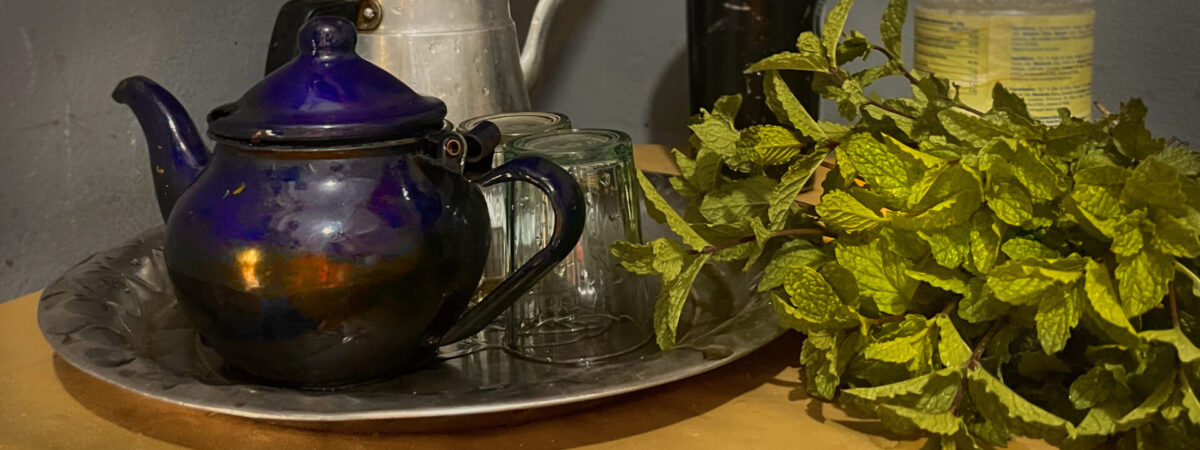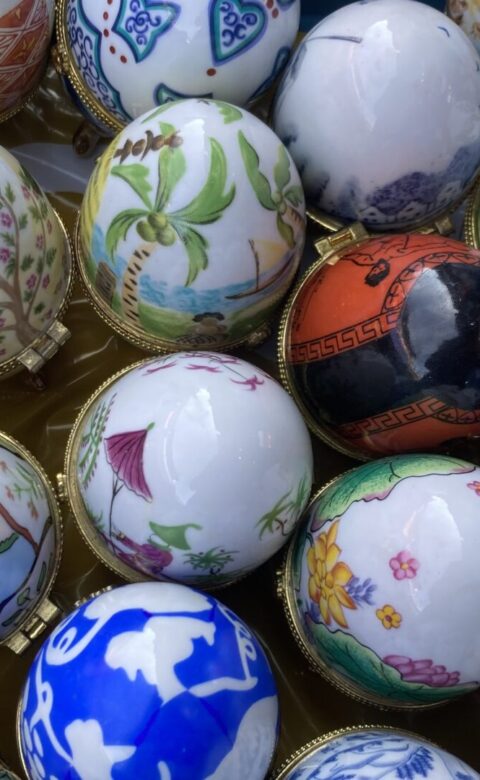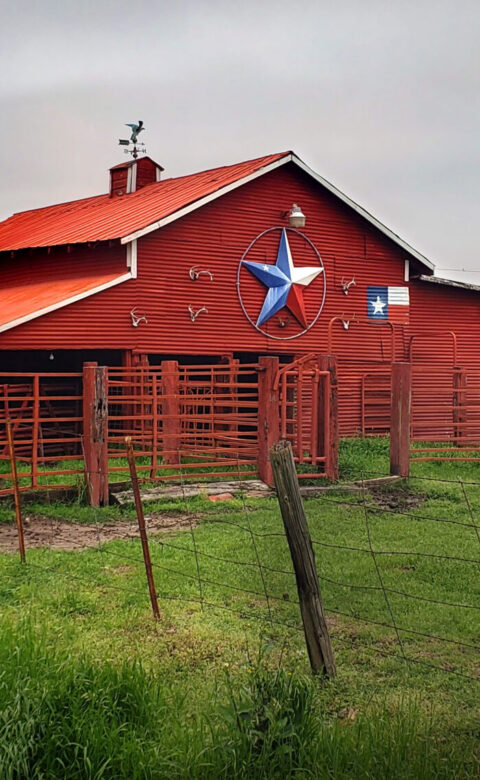The first time I truly paid attention to attaya, I was sitting on a woven mat under the shade of a mango tree at an old friend’s house in Brusubi. The air was thick with the scent of the boiling green tea leaves, their sharp bitterness softened by fresh mint and far too much sugar.
My friend’s grandma, a smiling woman in a brightly coloured wrapper, poured the steaming liquid from a small metal kettle into a shot glass, lifting it high before letting it fall back into the cup in a perfect golden arc. She repeated the motion several times, a rhythmic dance between kettle and glass.
“Attaya is not just tea,” she told me with a knowing smile. “It is time. It is patience.”
I had grown up in The Gambia, surrounded by the familiar rituals of attaya brewing, but until that moment, I had never truly seen it. Like many things in my homeland, it had blended into the backdrop of everyday life — always there, always present.
Attaya, I came to understand, is more than a drink. It is a ceremony of connection, a healing ritual disguised as an afternoon pastime. In a country where life moves at a different pace from the West, where time is measured not in hours but in the slow passing of conversations, attaya is the thread that ties people together.
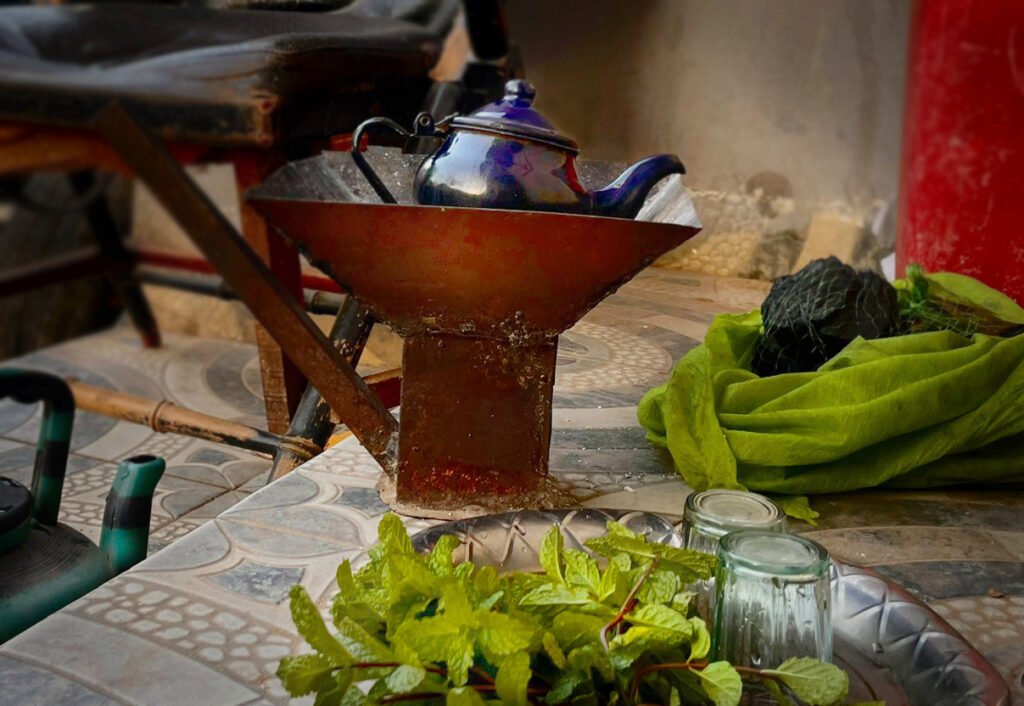
Travelling through The Gambia, from the bustling streets of Serrekunda to the quiet beachside villages of the south, I have found that attaya is the great equaliser. It is brewed by taxi drivers in the shade of their parked vehicles, by fishermen at the edge of the Atlantic, by elders sitting in dimly lit courtyards discussing the latest politics. It does not discriminate between the young and the old, the rich and the poor. Wherever there is attaya, there is an unspoken invitation to sit, to share, to belong.
On a recent visit to Banjul, wandering through the bustling alleyways of Albert Market, I found myself drawn to a row of fabric stalls, their colourful textiles billowing in the humid air. The voices of vendors calling out their best prices blended with the rhythmic hum of daily life. As I paused to admire the many different prints, one of the men behind the stall gestured for me to sit.
“Take a break, sister,” he said warmly, pulling out a low wooden stool. Beside him, over a small charcoal stove balanced on a crate, the attaya pot was bubbling away, releasing its familiar, bittersweet aroma.
He handed me a tiny glass filled with a dark, frothy liquid. “The first round is strong, like life,” he explained as I took my first cautious sip. The tea was sharp on my tongue. “The second is smoother, more familiar. And the third — ” he smiled, thinking of the last round of tea — “is sweet, because that is how life should be.”
As I sat among the swathes of fabric, watching the city move around me, I realised that attaya was not just a drink — it was an invitation, a moment of pause in the middle of the market’s chaos, a quiet reminder to slow down and savour life.
I listened as the neighboring vendors spoke of their lives — of their children, their work, their hopes. The conversation flowed as effortlessly as the tea, unhurried, full of warmth. I realised then that attaya is not only about taste. It is about the space it creates, the moments of quiet companionship it fosters.
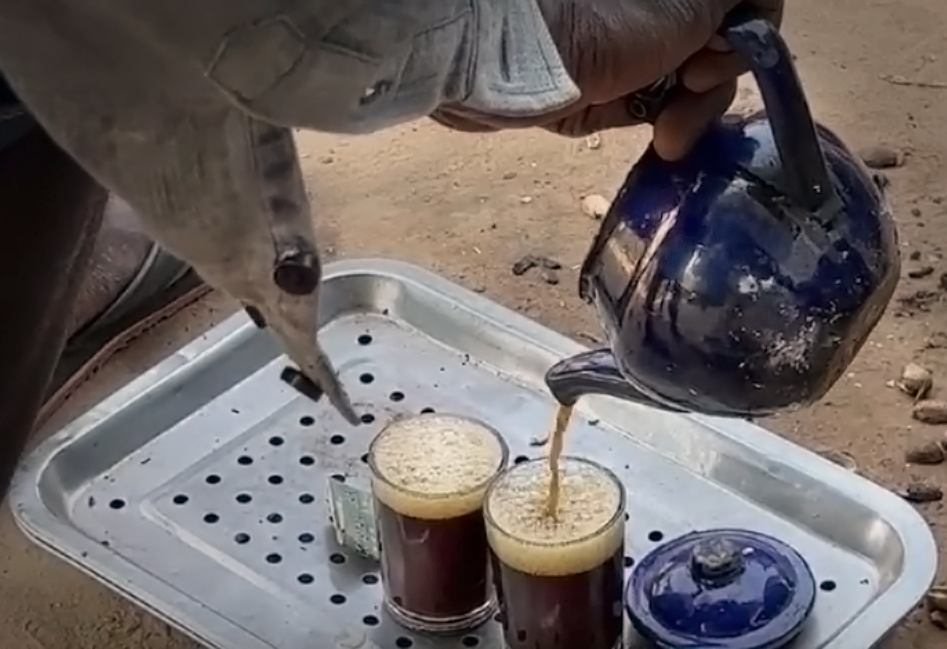
In a world that often demands urgency, attaya forces you to slow down. The process itself is a lesson in patience — each round must be brewed properly, poured and re-poured, savoured rather than rushed. There are no shortcuts.
I have found that this ritual of slowness is something many visitors to The Gambia struggle with at first. Western travelers, accustomed to efficiency and instant gratification, find themselves tapping their feet, glancing at their watches, wondering why a simple cup of tea takes so long. But those who surrender to the rhythm of attaya soon discover its magic.
Attaya teaches you to listen — to the bubbling of the tea, to the stories of those around you, to the quiet wisdom hidden in everyday moments. It reminds you that not everything in life needs to be hurried. Some things, like good conversations and strong tea, are meant to be savoured.
But perhaps the most powerful lesson I have learned from attaya is its ability to heal.
On a personal level, it has been a source of comfort during difficult times. When I returned to The Gambia after my summer travels to Europe, feeling lost between two worlds, it was over attaya that I found my grounding again. Sitting in my friend’s courtyard, watching her brother expertly pour the tea, I was reminded of the simplicity of home, the power of shared moments.
I have seen attaya bring people together in times of grief, offering solace without the need for words. It can create a sense of togetherness and belonging in the most unexpected places.
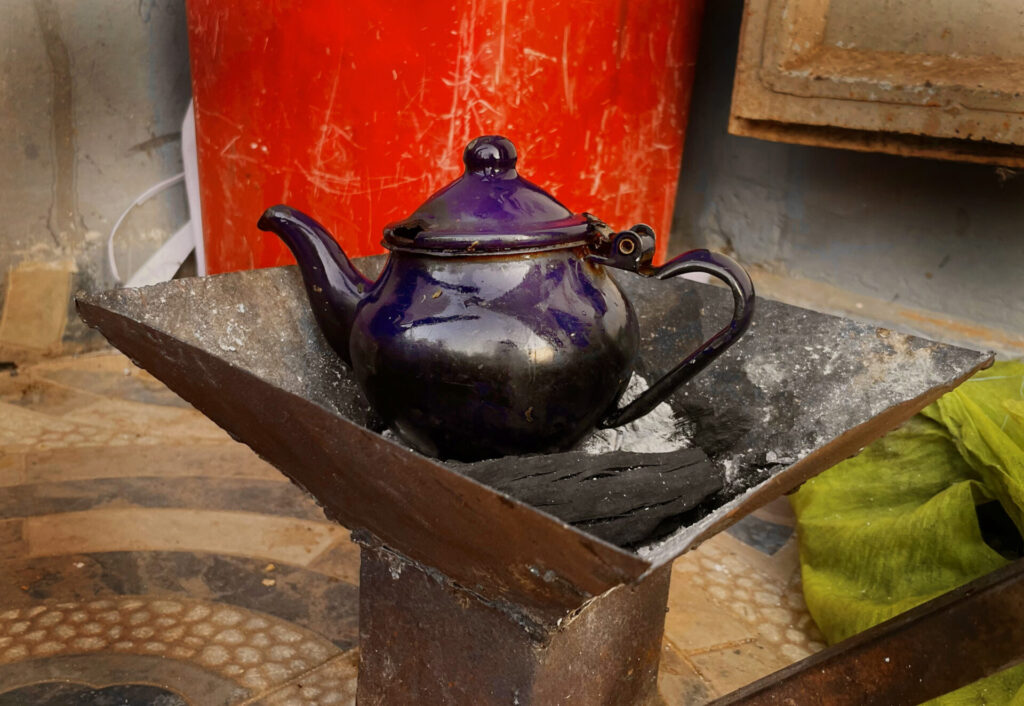
There is a reason why, even in the most remote parts of The Gambia, you will always find a small kettle, a small packet of green tea leaves, and a charcoal stove ready to be lit. Attaya is not just a drink — it is a bridge between languages, cultures and homes.
I think back to that afternoon in Brusubi, to the woman who first told me that attaya is time, patience, life. I understand now what she meant.
In the first bitter sip, there is struggle.
In the second, understanding.
And in the last, a quiet sweetness — the promise that, no matter where life takes you, there will always be a place to return to, a cup waiting to be filled.

